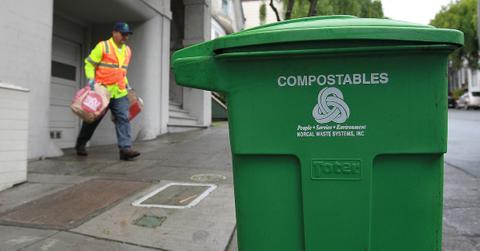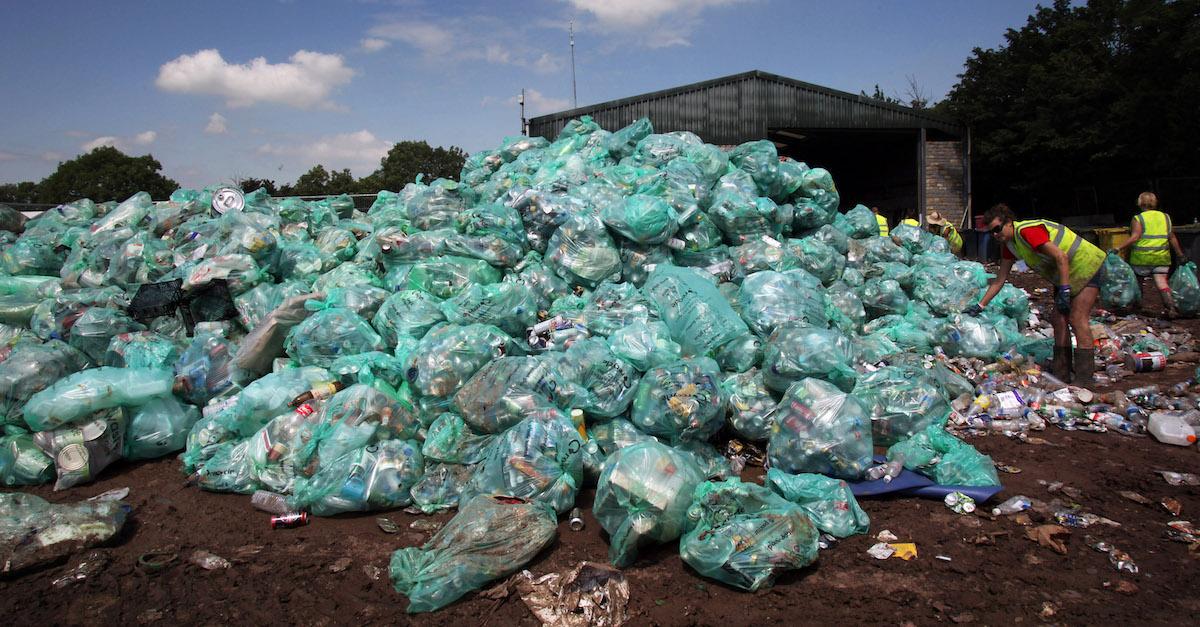Biodegradable Packaging Isn't Where We Need It to Be, to Actually Help Reduce Waste
Published Aug. 30 2021, 11:42 a.m. ET

Generally, companies will greenwash consumers by touting their use of "biodegradable packaging" — though that doesn't always end up impacting waste production. Sites that should be able to process compostable materials don't have the right technology, and oftentimes, the "sustainable" packaging in question ends up going straight to landfill trash. In fact, a recent investigation has shown that most composting sites in the U.K. cannot process "compostable plastic" at all.
“The biodegradable standard is designed for 90 percent reduction after a three-months period. Our process is around 40 days in the digester... But they’re also devoid of oxygen, and compostable packing will rely on sunlight and oxygen to get full degradation," said Kate Lister, who works for BioGen, an anaerobic digestion facility in Hertfordshire, according to The Telegraph. “Compostable plastics weren’t designed with anaerobic digesters in mind."

What are the problems with compostable packaging?
In theory, industrial composting plants should be able to break down compostable plastics like other biodegradable materials, but they often end up sending compostable plastics to landfill trash. As per a report conducted by The Telegraph, processing sites often lack the necessary technology to differentiate compostable plastic from regular plastic. They're sent to recycling, where they can't be processed like regular plastic, and so they are sent to landfill. Now, most sites only accept compostable food waste liners.
But this isn't just a problem with the technology implemented at at waste processing sites. Some types of compostable packaging simply break down into smaller pieces like microplastics, according to The BBC. Most compostable packaging also doesn't carry high quality nutrients like organic materials that would generally be composted, such as fruits or vegetables, according to StanPac, which is why some say the compost that comes out of it— if processed correctly — is extremely low quality.
“Effectively all we’ve done is create a new form of single-use waste, because it doesn’t add anything to the compost product,” National Resource Consortium's director, Paul Jackson, told The Telegraph. “At least plastic can be recycled into something new.”
What can companies do to ensure their packaging is actually compostable?
To ensure our "compostable packaging" is actually making a difference in regards to waste reduction, we need to make a few necessary investments for change. First, we need to invest in better technology to properly process compostable packaging. As previously mentioned, some industrial composting plants that should process these supposedly eco-friendly and biodegradable materials can't tell the difference between biodegradable and regular plastic, and they don't always have the means to properly break them down.
We also need to invest in higher quality biodegradable packaging, that can simultaneously create quality compost, and truly biodegrade. Additionally, finding higher quality materials that could truly break down in one's backyard compost heap, as opposed to requiring the use of heavy machinery, would greatly lower a company's impact. As of right now, it seems that biodegradable paper-based packaging — or even better — reusables, are our best option, and compostable plastic still isn't where it needs to be.